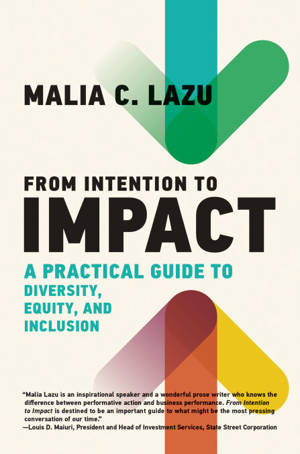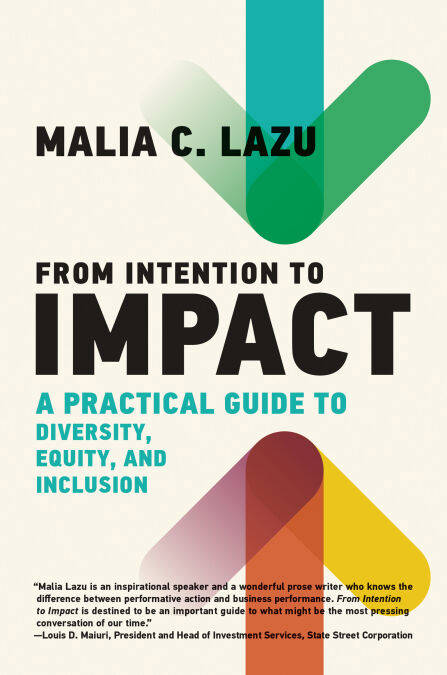
- Retrait gratuit dans votre magasin Club
- 7.000.000 titres dans notre catalogue
- Payer en toute sécurité
- Toujours un magasin près de chez vous
- Retrait gratuit dans votre magasin Club
- 7.000.0000 titres dans notre catalogue
- Payer en toute sécurité
- Toujours un magasin près de chez vous
32,48 €
+ 32 points
Description
How business leaders can move their DEI efforts from intention to impact through strategy and culture change.
In the aftermath of George Floyd’s murder, corporate America has doubled down on its public intentions to be more inclusive and equitable. Yet beyond the pledges it is difficult to see which system changes make a real difference. In From Intention to Impact, Malia Lazu draws on her background as a community organizer, her corporate career as a bank president, and now her experience as a leading DEI consultant to explain what has been holding organizations back and what they need to do better. First and foremost, she recognizes that truly moving from intention to impact means targeting and changing the traditions and culture that normalize whiteness.
From Intention to Impact shows what organizations, leaders, and people at all levels must do to create more inclusive environments that honor and value diversity. Lazu shares a seven-stage guide through this process as well as a 3L model of listening, learning, and loving that readers can use from the initial excitement of doing “something” to the frustration when the inevitable pushback comes, and finally to the determination to do the hard work despite the challenges—on corporate and political fronts. Most compelling, From Intention to Impact shows that, while commitment from the top is paramount, for DEI to be most effective, it needs to be decentralized—among managers, within teams, and across the organization.
A crucial read for anyone looking to future-proof their company, From Intention to Impact goes beyond the “feel good” PR-centric actions to showcase the real DEI work that must be done to create true and lasting systemic change.
In the aftermath of George Floyd’s murder, corporate America has doubled down on its public intentions to be more inclusive and equitable. Yet beyond the pledges it is difficult to see which system changes make a real difference. In From Intention to Impact, Malia Lazu draws on her background as a community organizer, her corporate career as a bank president, and now her experience as a leading DEI consultant to explain what has been holding organizations back and what they need to do better. First and foremost, she recognizes that truly moving from intention to impact means targeting and changing the traditions and culture that normalize whiteness.
From Intention to Impact shows what organizations, leaders, and people at all levels must do to create more inclusive environments that honor and value diversity. Lazu shares a seven-stage guide through this process as well as a 3L model of listening, learning, and loving that readers can use from the initial excitement of doing “something” to the frustration when the inevitable pushback comes, and finally to the determination to do the hard work despite the challenges—on corporate and political fronts. Most compelling, From Intention to Impact shows that, while commitment from the top is paramount, for DEI to be most effective, it needs to be decentralized—among managers, within teams, and across the organization.
A crucial read for anyone looking to future-proof their company, From Intention to Impact goes beyond the “feel good” PR-centric actions to showcase the real DEI work that must be done to create true and lasting systemic change.
Spécifications
Parties prenantes
- Auteur(s) :
- Editeur:
Contenu
- Nombre de pages :
- 192
- Langue:
- Anglais
- Collection :
Caractéristiques
- EAN:
- 9780262377898
- Date de parution :
- 05-02-24
- Format:
- Ebook
- Protection digitale:
- Adobe DRM
- Format numérique:
- ePub

Les avis
Nous publions uniquement les avis qui respectent les conditions requises. Consultez nos conditions pour les avis.






